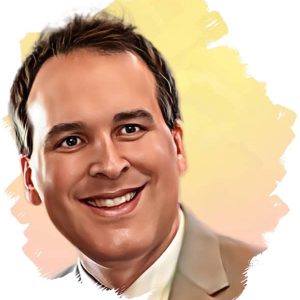As Major League Baseball honors the heroic Jackie Robinson on the 62nd anniversary of his debut with the Brooklyn Dodgers, the decreasing number of African-Americans playing in the big leagues continues to cause concern for the National Pastime.
Though MLB’s 2009 Racial and Gender Report Card reports an increase (2%) in African-American players in 2008 (the first time since 1995), only 10.2% of all players were African-American, a far cry from 1975 when blacks filled 27% of roster spots.
The reasons for this sharp decline are many, ranging from overwhelming economic factors to the increased popularity of football and basketball in the last 30 years.
Baseball has done a tremendous job in honoring Robinson, retiring his No. 42 throughout the big leagues in 1997 and allowing players or entire teams to wear his number on April 15 to honor his undeniable legacy.
Robinson faced persecution and trials that are unimaginable in this day and age when we idolize professional athletes, deservedly or not. He was the first black player to play in the modern major leagues, and for that, he should be honored.
However, were there not other black players that cleared similar hurdles for their respective teams in the 1940s and 50s? Did they not face many of the same obstacles and prejudice?
Larry Doby is remembered as the first black player to play in the American League, debuting with the Cleveland Indians on July 5, 1947. The Indians have honored Doby by wearing his No. 14 jersey to celebrate his overshadowed feat.
What about the others?
Can you name the first African-American to play for the Baltimore Orioles?
Older fans may remember Joe Durham playing at the end of the 1954 season, but the first was actually a 34-year-old pitcher named Jay Heard.
Heard’s stay in the big leagues was a brief one, pitching in only two games while posting a 13.50 ERA before making his last appearance on May 28, 1954.
It should be noted that Heard was not the first African-American to play for the franchise. Hank Thompson broke the color barrier for the St. Louis Browns three months after Robinson’s debut in 1947.
While not even a blip in the club’s rich history of pitching, shouldn’t Heard be recognized as the first black player to play for the Orioles?
His debut was seven years after Robinson first took the field in Brooklyn, but he had to have faced severe discrimination, not to mention the same feelings of loneliness.
Baseball should take another step in celebrating the many brave African-Americans who took the field with teams of all white players. Instead of promoting players and entire teams to wear the No. 42 on this evening, they should further educate today’s players and fans by encouraging teams to wear the numbers of the black players to first take the field for their respective franchises.
Expansion franchises that entered the league after 1959 (the year in which the Boston Red Sox became the last team to integrate) could still honor Robinson by wearing the No. 42 on their jerseys.
Instead of every Oriole wearing No. 42 this evening against the Rangers, the No. 38 should be adorned on every player’s back. Not for Brother Lo or Jerry Walker, but for the 34-year-old former Negro Leaguer and Orioles pitcher Heard.
His stay with the Orioles was brief, but his mark left on the franchise should not be ignored. His unimpressive numbers are of no consequence.
April 15th should be viewed as more than just a day to honor Jackie Robinson, but also as the day in which a discriminated fraternity of courageous men were finally allowed to compete with everyone else.
Robinson would probably prefer to share the spotlight; fully understanding this day was about so much more than just himself or the Brooklyn Dodgers. It was the day on which baseball truly became the National Pastime. He would want Major League Baseball to promote the many African-Americans that tore down barriers, instead of only shining the spotlight on his own visage.
Anyone doubting this should recall his words at the 1972 World Series, 25 years after his historic debut:
“I was really just a spoke in the wheel in the success that we had some 25 years ago…I’m extremely proud and pleased to be here this afternoon, but must admit I’m going to be tremendously more pleased and more proud when I look at that third base coaching line one day and see a black face managing in baseball.”
He passed away only 10 days later, but Orioles legend Frank Robinson realized this dream less than three years later when he became manager of the Cleveland Indians in 1975.
Even in his final days, Jackie Robinson viewed the bigger picture instead of focusing on himself. Today, he would want Major League Baseball to educate its players and fans about the other men who so courageously broke down walls that had existed for centuries. Perhaps this would be a positive step in promoting the game to the many African-American youth that have turned away.
So tonight, when you’re watching the Orioles wear those No. 42 jerseys, take a moment to think not only of Jackie Robinson, but of No. 38 Jay Heard, Larry Doby, and the many others that share in this historic day.
Robinson will always be celebrated as the first, but so many men stood beside him in their demonstration of courage and progress.






















